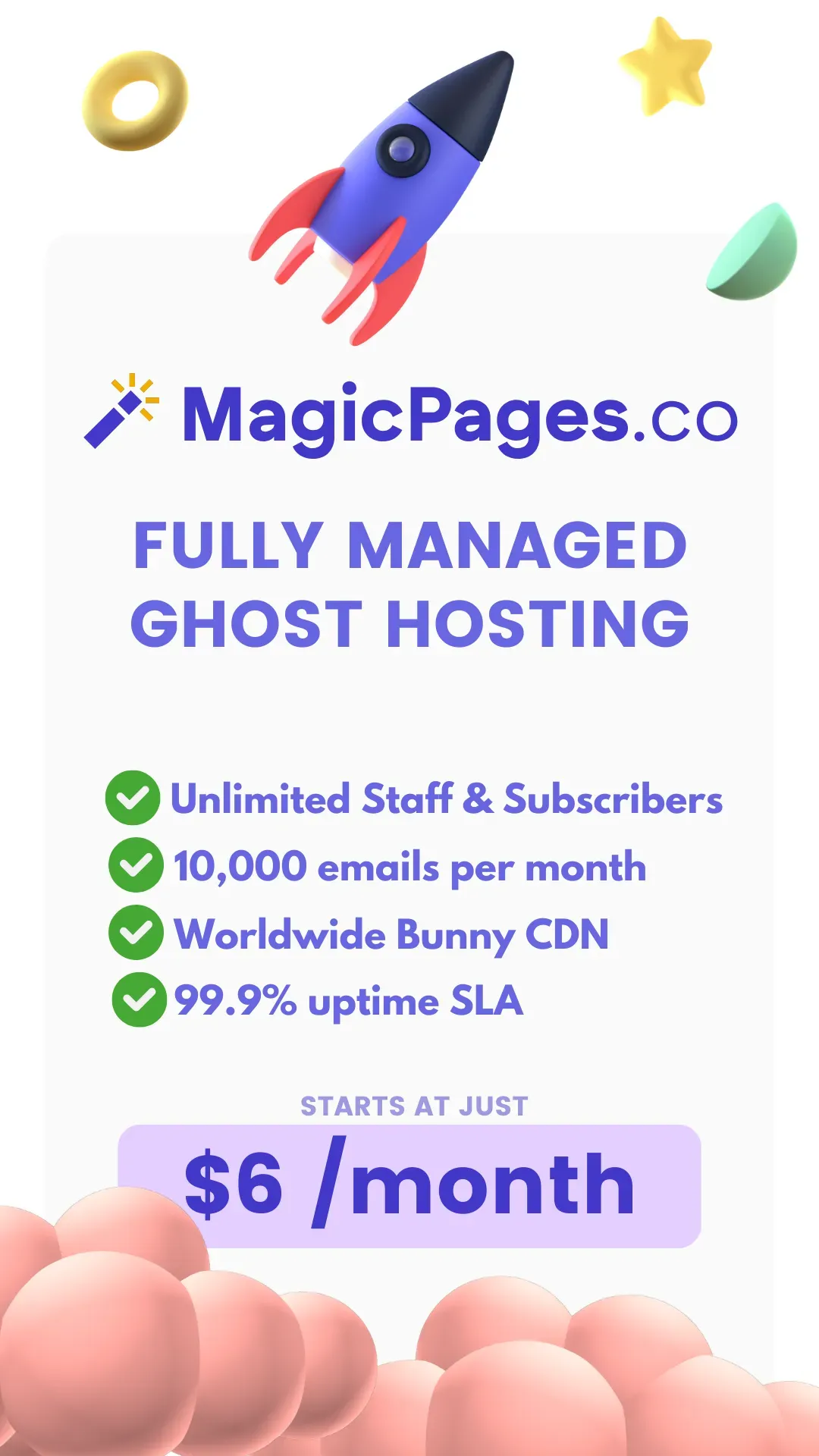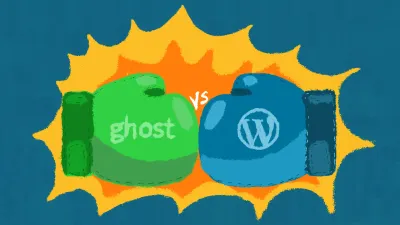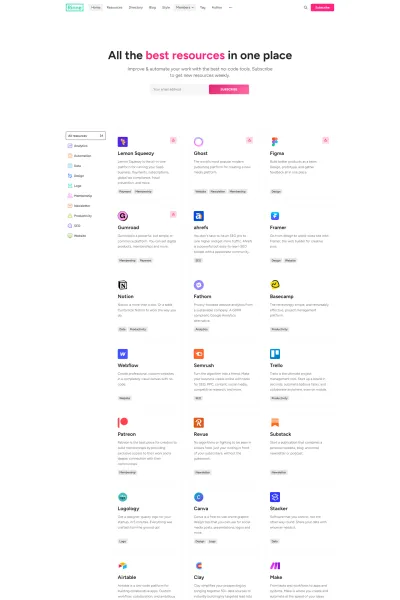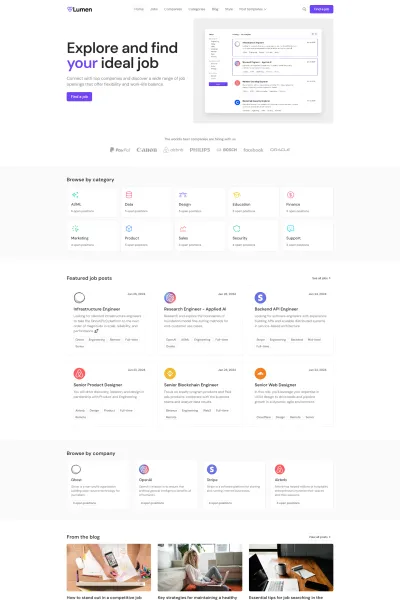This article explores how Ghost CMS can be a powerful tool for monetizing your blog. It discusses the evolution of blogging from a hobby to a profitable endeavor and outlines various monetization strategies such as affiliate marketing, advertising, sponsored content, and selling digital products. The article highlights Ghost's features, including built-in SEO, membership capabilities, and fast performance, which can enhance your blogging success. It also emphasizes the importance of high-quality content, audience engagement, and strategic planning in building a profitable blog.
Introduction
In today's digital age, blogging has evolved from a hobby to a lucrative revenue stream for many. The allure of sharing one's passions while earning a substantial income is undeniable. But what makes blogging such an attractive venture?
The Rise of Blogging as a Profitable Endeavor
The blogosphere has experienced exponential growth over the years. As of 2024, over 600 million blogs are active online, with over 6 million new posts published daily.
This surge indicates a significant shift towards content creation as a viable income source.
Diverse Monetization Strategies
Bloggers employ various strategies to generate income:
- Affiliate Marketing: Promoting products or services and earning a commission on sales. For instance, Abby of Just a Girl and Her Blog generates 65% of her income through affiliate marketing and promoting tools like ConvertKit.
- Advertising: Displaying ads through networks such as Google AdSense. Some successful blogs earn significant revenue from ad placements, with food blogs averaging $9,169 per month, 44% of which comes from ads.
- Sponsored Content: Collaborating with brands to create content that promotes their products or services. Travel bloggers, for example, often charge an average of $200 per sponsored post.
- Digital Products and Services: Selling e-books, courses, or consulting services. Many bloggers diversify their income by offering products that cater to their audience's needs.
Story of Kelly Gordon
Consider the journey of Kelly Gordon, a 42-year-old superyacht captain who ventured into content creation. Starting her Instagram account in 2019 to connect with family, she began sharing insights into her life at sea. Her engaging content attracted over 12,000 followers, leading to a side hustle that earns her nearly £100,000 annually through ads, sponsorships, public speaking, and merchandise.
The Appeal of Blogging
The prospect of turning personal passions into profit is enticing. Blogging offers flexibility, creative expression, and the potential for financial independence. However, its success requires dedication, strategic planning, and consistent effort.
As we delve deeper into the economics of blogging, we'll explore how platforms like Ghost CMS can play a pivotal role in your blogging journey. Can Ghost CMS help you earn? Let's find out.
The Blogging Landscape
Blogging has undergone a remarkable transformation over the past few decades, evolving from personal online diaries into powerful platforms for income generation. This section will explore this journey, bloggers' monetization strategies, and their challenges in today's digital landscape.
The Evolution of Blogging: From Hobby to Income Source
In the mid-1990s, blogging began to allow individuals to share personal experiences and thoughts online. The term weblog was coined by Jorn Barger in December 1997 and shortened to blog. Early platforms like Open Diary (1998) and Blogger (1999) made blogging more accessible.
By the early 2000s, blogs started to cover a wide range of topics, attracting larger audiences. This growing readership caught the attention of advertisers and businesses, leading to the monetization of blogs.
Platforms like Google's AdSense, launched in 2003, enabled bloggers to earn revenue through targeted advertising. Over time, blogging evolved into a viable career path, with many individuals turning their blogs into full-fledged businesses.
Common Monetization Strategies
Bloggers utilize various methods to generate income:
- Advertising: Displaying ads through networks like Google AdSense allows bloggers to earn revenue based on clicks or impressions. For example, food blogs often generate significant income from ad placements.
- Affiliate Marketing: Promoting products or services and earning a commission on sales through referral links. Many bloggers partner with companies to recommend products relevant to their audience.
- Sponsored Content: Collaborating with brands to create content highlighting their products or services. Travel bloggers, for instance, may charge for sponsored posts featuring destinations or travel gear.
- Memberships and Subscriptions: Offering exclusive content or perks to readers who pay a recurring fee. This model fosters a sense of community and provides a steady income.
Challenges in the Blogging Landscape
Despite the opportunities, bloggers face several challenges:
- Market Saturation: With millions of blogs, standing out requires unique, high-quality content. The abundance of blogs means attracting and retaining readers, which demands consistent effort and innovation.
- Maintaining Quality Content: Regularly producing engaging and valuable content keeps readers interested and maintains credibility. This requires dedication, creativity, and a deep understanding of the audience's interests.
- Adapting to Changing Algorithms: Search engines and social media platforms frequently update their algorithms, impacting blog visibility and traffic. Staying informed and adaptable is crucial for sustaining and growing a blog's audience.
Navigating these challenges requires strategic planning, continuous learning, and a passion for the subject. Successful bloggers often balance monetization and providing genuine value to their readers, ensuring long-term engagement and profitability.
Introducing Ghost CMS
In the ever-evolving realm of digital publishing, selecting the right Content Management System (CMS) is crucial. Enter Ghost CMS—a platform designed with simplicity and performance at its core.
Origins and Mission of Ghost CMS
Founded in April 2013 by John O'Nolan and Hannah Wolfe, Ghost emerged from a desire to create a more streamlined blogging experience. John, a former deputy head of the WordPress UI team, envisioned a platform that prioritized content creation without unnecessary complexities.

A detailed story of Ghost
This vision led to a successful Kickstarter campaign, raising £196,362 to bring Ghost to life. The mission was clear:
Ghost CMS vs. Other Platforms
When comparing CMS options, Ghost distinguishes itself through its dedication to simplicity and speed:
- User Interface: Ghost offers a clean, intuitive interface tailored for content creators. It minimizes distractions and enhances the writing experience. In contrast, platforms like WordPress provide extensive customization, which can sometimes lead to a more cluttered user experience.
- Performance: Built on Node.js, Ghost is optimized for speed, delivering fast page loads and efficient content delivery. This performance-centric design contrasts with more feature-heavy platforms that may experience slower load times.
- Functionality: While platforms like WordPress support a wide array of plugins and themes for diverse website needs, Ghost focuses primarily on publishing. This specialization results in a more streamlined, less bloated system, ideal for bloggers and writers.
Ghost CMS is a modern publishing platform that emphasizes simplicity and performance. This makes it attractive for creators seeking a focused and efficient tool.
Cost Analysis
Understanding the financial and technical commitments is crucial on your blogging journey with Ghost CMS. Let's explore the costs and considerations of self-hosting versus opting for Ghost(Pro) managed hosting.
Self-Hosting Ghost CMS
Expenses Involved
- Domain Registration: Securing a custom domain typically costs between $5 and $15 annually. There are cheaper and free options available, but this price is average.
- Hosting Services: Platforms like DigitalOcean and Linode offer hosting solutions starting at $5 per month for basic plans. However, as your blog grows and attracts more traffic, you might need to upgrade to more robust plans, which can increase costs.
- Additional Services:
- Content Delivery Network (CDN): A CDN enhances site speed and performance. Services like Cloudflare offer free basic plans, but advanced features come at a premium.
- Email Delivery: Integrating services like Mailgun is standard for sending newsletters or transactional emails. Mailgun's pricing starts with a free tier for up to 5,000 emails per month, with subsequent emails billed at $0.80 per 1,000 emails. If you do not want to send newsletters, you can use any SMTP service (not just Mailgun) for transactional emails.
Technical Expertise and Time Investment
Self-hosting demands a certain level of technical proficiency. You'll install and configure Ghost, manage server environments, ensure regular backups, and implement security measures. This hands-on approach can be time-consuming, especially for those new to server management. However, it offers complete control over your blogging environment.
Ghost(Pro) Managed Hosting
Pricing Tiers
Ghost(Pro) provides a range of plans to cater to different needs:
- Starter Plan: At $9 per month, this plan is ideal for individuals, offering essential features to kickstart your blog.
- Creator Plan: Priced at $25 per month, it caters to growing blogs, providing additional resources and support.
- Team Plan: Designed for larger teams, this plan costs $50 per month, and you'll have advanced features suitable for collaborative blogging.
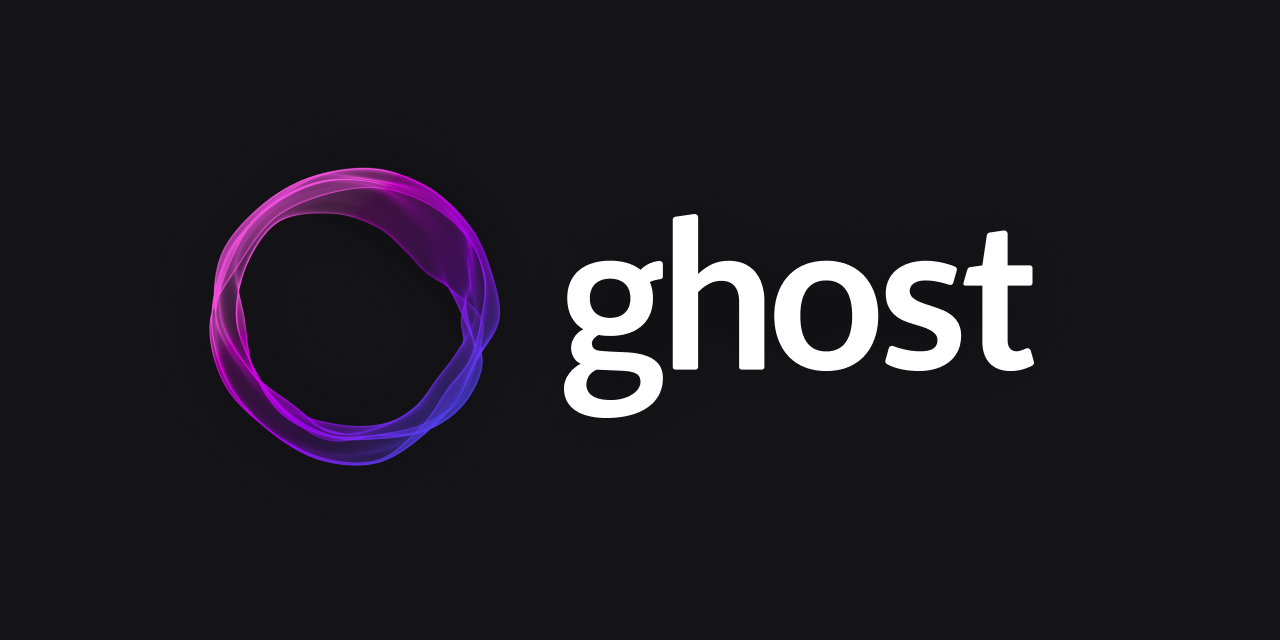
Ghost(Pro)
Included Services
Opting for Ghost(Pro) means many operational aspects are managed for you:
- Automatic Updates: Your platform remains current with the latest features and security patches without manual intervention.
- Backups: Regular backups ensure your data is safe and can be restored.
- Security: Robust security measures protect your blog from potential threats.
- Support: Access to dedicated support assists with any challenges or questions.
Comparative Analysis
Cost and Time Considerations
While self-hosting might initially appear cost-effective, cumulative expenses for hosting, CDN, email services, and the value of your time can add up. Conversely, Ghost(Pro) offers an all-inclusive package, potentially leading to cost savings and reduced time investment in the long run.
In conclusion, your choice between self-hosting and Ghost(Pro) should align with your technical capabilities, budget, and the value you place on convenience versus control.
Revenue Generation
Ghost CMS offers features designed to help content creators monetize their publications effectively. Let's explore the various revenue opportunities available within Ghost.
Membership and Subscription Models
Built-in Membership Features
Ghost provides native support for memberships, allowing publishers to offer free and paid subscriptions. This functionality enables you to convert casual readers into engaged members, fostering a sense of community and loyalty. You can create exclusive content that is accessible only to members, encouraging readers to subscribe for premium access.

Integration with Stripe for Payment Processing
Ghost integrates seamlessly with Stripe, a leading payment processor, to facilitate payments. This integration allows you to manage subscriptions and process payment sets. Setting up Stripe with Ghost is straightforward:
- Navigate to the
Settingsin your Ghost admin dashboard. - Under
Membership, click onConnect with Stripe. - Follow the prompts to link your Stripe account.

Once connected, you can set pricing tiers for your subscriptions, offering flexibility to cater to different audience segments. The primary benefit of this setup is the establishment of recurring revenue streams, providing financial stability and predictability for your publication.
Advertising Opportunities
Integrating Google AdSense with Ghost
Another avenue for monetization is through advertising. Ghost allows for the integration of Google AdSense to display targeted ads relevant to your audience. To set up Auto ads on your Ghost site:
- Sign up for a Google AdSense account and add your Ghost website.
- Once approved, you'll receive a code snippet from AdSense.
- In your Ghost admin dashboard, go to
Settings>Code Injection. - Paste the AdSense code into the
Site Headersection. - Save the changes and wait for ads to start appearing on your site.


This integration allows you to generate income based on ad impressions and clicks, adding an additional revenue stream to your publication.
Affiliate Marketing and Sponsored Content
Incorporating Affiliate Links and Securing Sponsored Posts
Ghost's flexible content management system makes it easy to integrate affiliate marketing and sponsored content:
- Affiliate Marketing: Embed affiliate links within your content to promote products or services. When readers make purchases through these links, you earn a commission. Ensure the products align with your audience's interests to maintain trust and engagement.
- Sponsored Content: Collaborate with brands to create content highlighting their offerings. This can include sponsored blog posts, reviews, or features.
By leveraging these strategies, you can diversify your income streams while providing value to your audience. Ghost equips publishers with robust tools to monetize content effectively. You can unlock your publication's full revenue potential through membership models, advertising, affiliate marketing, and sponsored content.
Success Stories
Ghost has empowered numerous bloggers and publishers to achieve significant financial success and enhance audience engagement. Let's explore some notable examples:
The Browser
The Browser is a distinguished newsletter-based platform that curates thought-provoking articles, essays, and multimedia content for its subscribers. By leveraging Ghost's membership features, The Browser offers premium content to its subscribers, fostering a dedicated community and generating consistent revenue.
Tangle
Tangle is an independent, non-partisan newsletter read by over 65,000 people across more than 55 countries. Using Ghost's built-in membership and subscription tools, Tangle has effectively managed its subscriber base, offering free and premium content. This approach has facilitated substantial audience growth and a steady income stream.
The Lever
The Lever is a nonpartisan, reader-supported investigative news website. By adopting Ghost CMS, The Lever has streamlined publication management and subscription processes, enabling efficient delivery of investigative journalism to its audience.
Ghost's Own Success
Ghost has surpassed $7 million in annual revenue, a testament to its effectiveness. This achievement reflects the platform's commitment to continuous improvement and its ability to support a vast community of independent publishers.

These examples illustrate how Ghost CMS empowers publishers to achieve financial success and foster meaningful connections with their audiences.
SEO and Audience Engagement
Building a profitable blog requires a strategic approach to search engine optimization (SEO) and audience engagement. Ghost CMS offers robust tools in these areas, empowering content creators to enhance their online presence and foster meaningful connections with readers.
Ghost's SEO Capabilities
Ghost CMS is designed with built-in SEO features that simplify the optimization process:
- Customizable Meta Tags: Ghost allows users to easily modify meta titles and descriptions for individual posts and pages, ensuring that each piece of content is accurately represented in search engine results. This customization enhances click-through rates by providing clear and relevant information to potential readers.
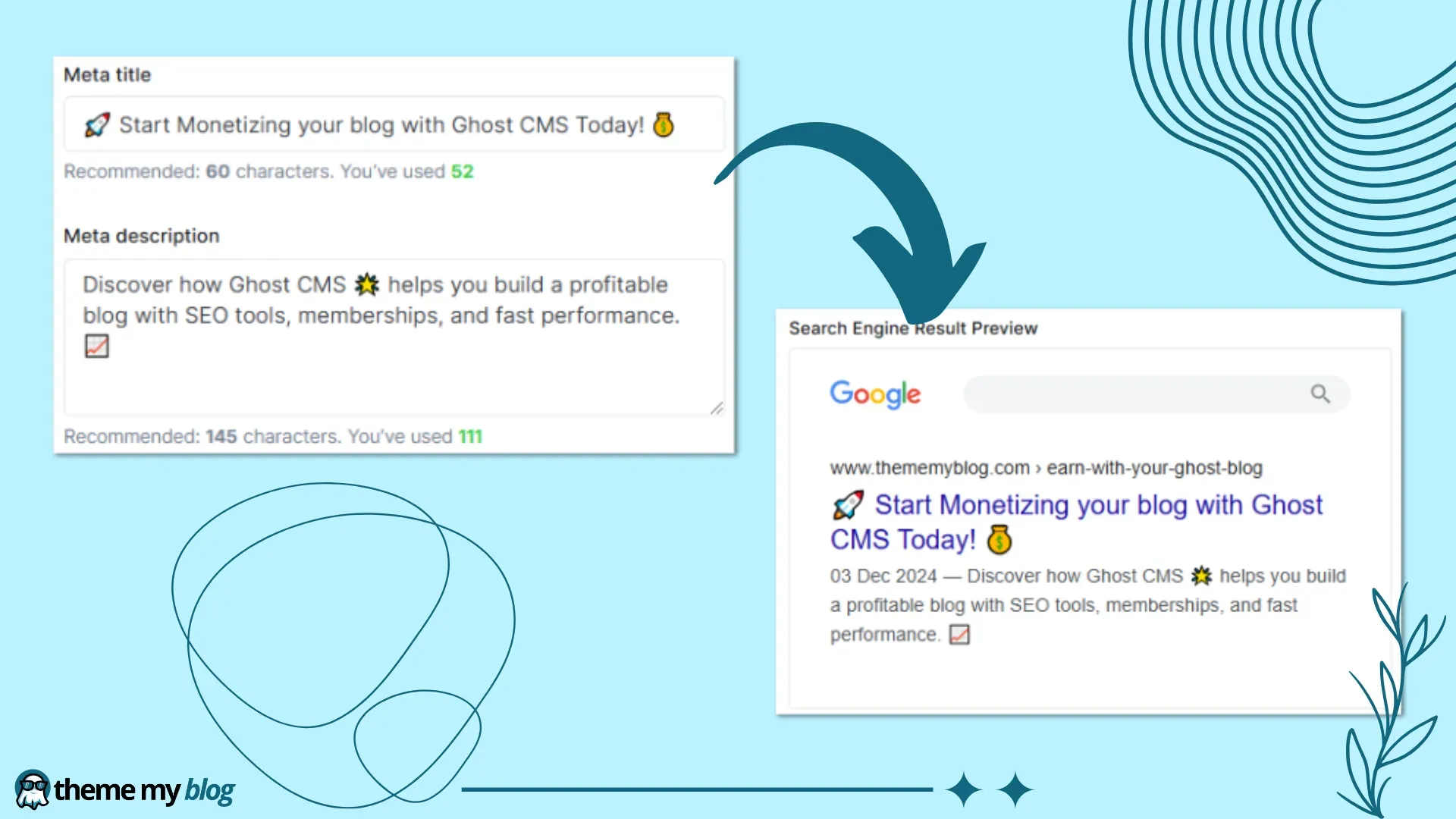
- Automatic XML Sitemaps: Ghost automatically generates and updates an XML sitemap for your website. This feature aids search engines in understanding your site's structure and efficiently indexing its content, ensuring that new and updated content is promptly discovered.
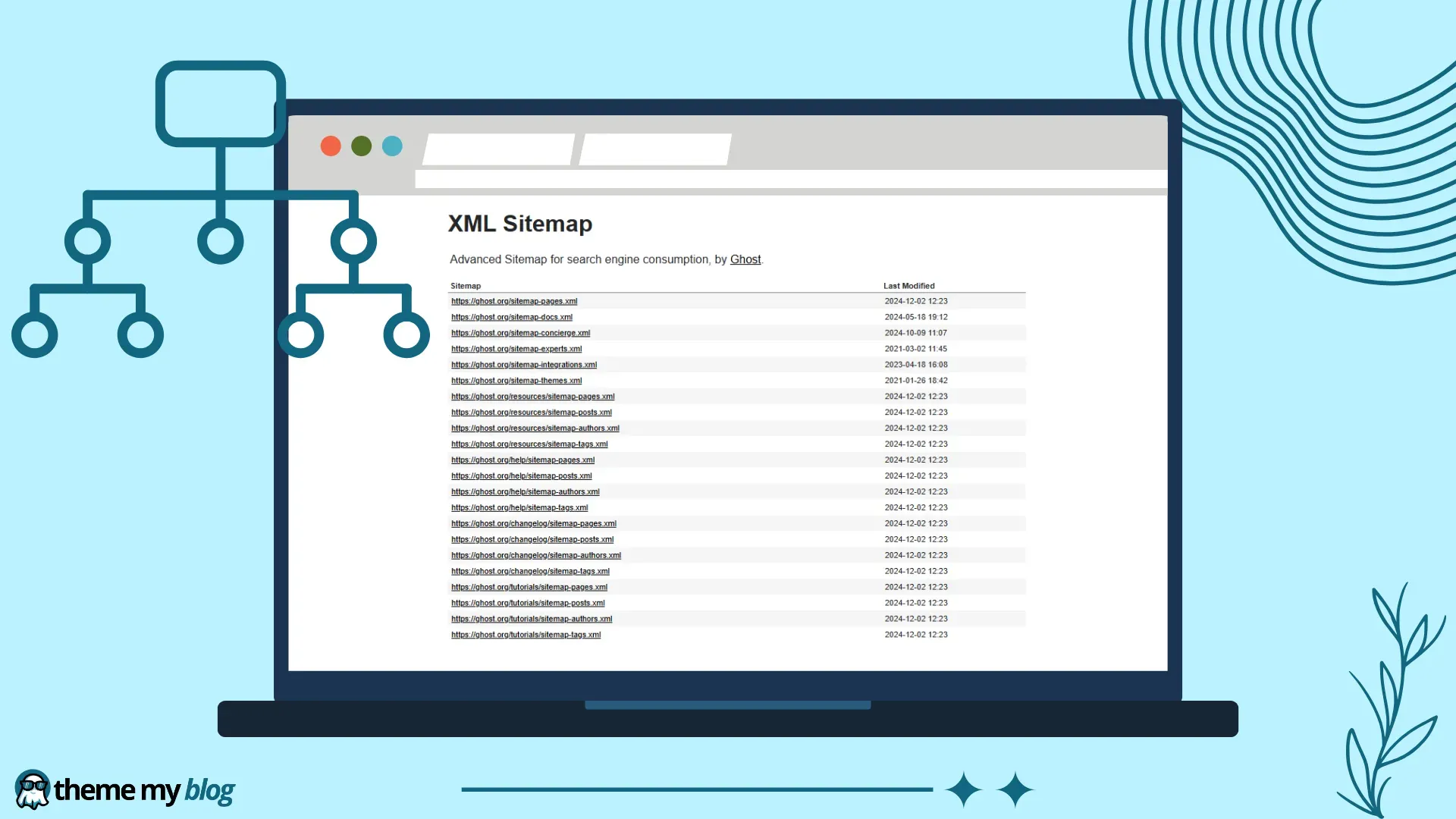
- Canonical Tags: To prevent issues with duplicate content, Ghost includes canonical tags across your site, indicating to search engines the preferred version of a page. This practice consolidates ranking signals and maintains the integrity of your content's SEO.
- Structured Data: Ghost incorporates structured data in all posts and pages, helping search engines comprehend the context and content of your pages. This can improve how your site appears in search results.
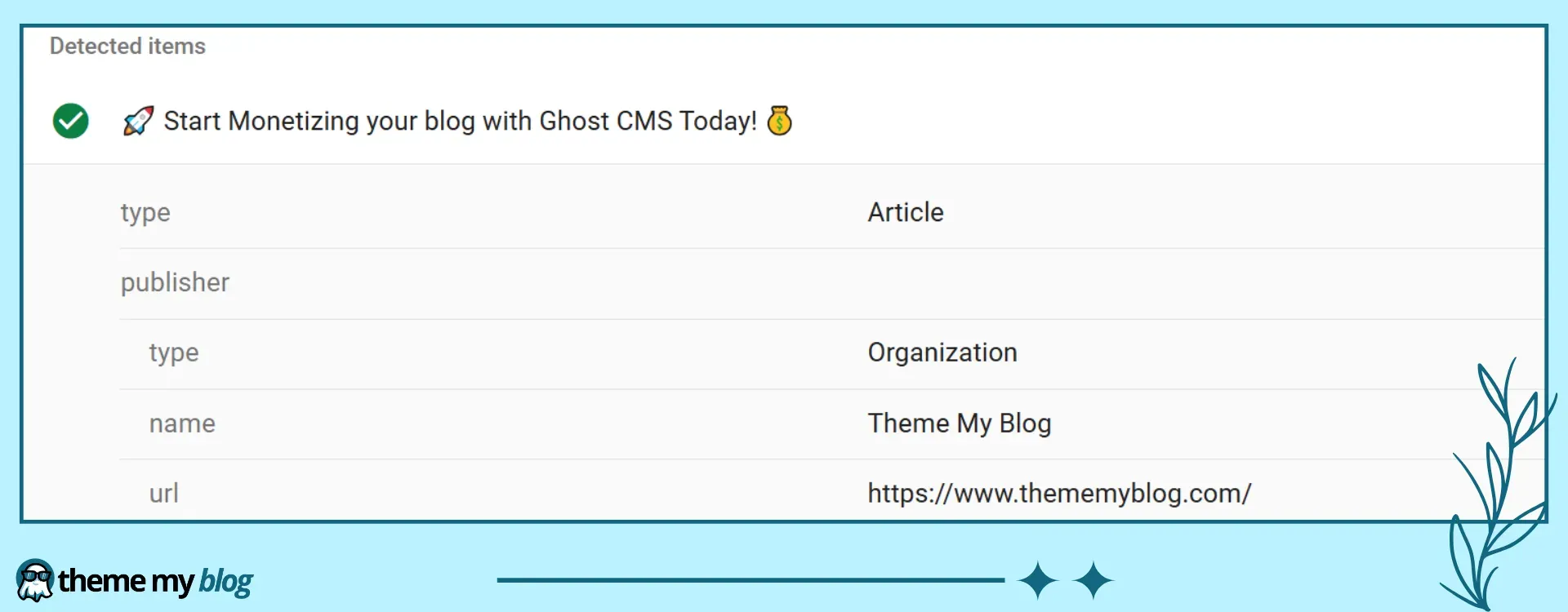
- Social Media Integration: Ghost has built-in support for social media metadata, including Twitter Cards and Open Graph tags for Facebook. This ensures your content is displayed optimally when shared on social platforms, enhancing visibility and engagement.
Tools for Audience Engagement
Engaging your audience is crucial for building a loyal readership. Ghost CMS provides several features to facilitate this connection:
- Integrated Newsletters: Ghost enables you to deliver posts directly to your audience via email newsletters, ensuring readers are informed whenever new content is published. You can segment your audience and send tailored newsletters based on their preferences, fostering a personalized experience.
- Native Analytics: Within the Ghost Admin dashboard, you can monitor key metrics such as total members, revenue, and average email open rates. Post analytics offer insights into how individual pieces of content perform, allowing you to understand what resonates with your audience and refine your strategy accordingly.
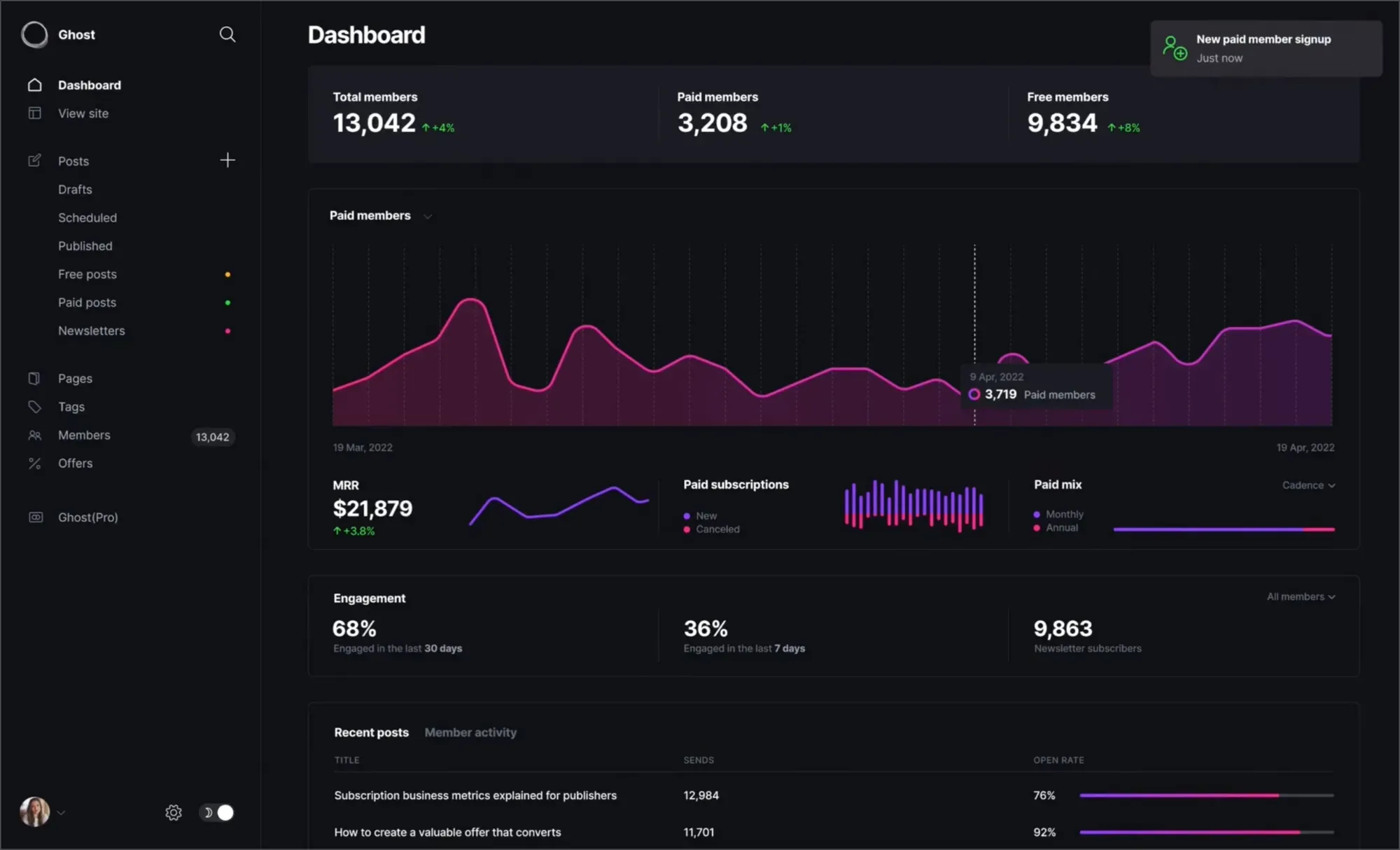
By leveraging Ghost's SEO capabilities and audience engagement tools, you can enhance your blog's visibility and cultivate a dedicated readership, laying the way for a profitable blogging venture.
Planning for Growth
As your blog gains traction and your audience grows, the demands on your blogging platform increase. From handling surges in traffic to managing a larger content volume, scalability becomes a critical factor in sustaining and expanding your blogging efforts. Ghost CMS is built with these considerations in mind, making it an excellent choice for bloggers aiming for long-term success.
Accommodating Blog Growth with Ghost CMS
Built for Speed and Performance
Ghost CMS is known for its lightweight architecture and performance-focused design. Unlike some platforms with excess functionality, Ghost is built on Node.js, a technology renowned for its efficiency and scalability. This makes it adept at handling increased traffic without compromising site speed or user experience.
For instance, blogs experiencing viral traffic spikes—such as during a product launch or when a post gains traction on social media—can rely on Ghost to remain responsive. Its infrastructure ensures that pages load quickly, reducing bounce rates and maintaining a professional image.
Content Management for Expanding Libraries
As your blog matures, your content library will grow. Ghost accommodates this with a streamlined content management system that makes organizing and accessing posts easy. Whether managing a few dozen posts or several thousand, Ghost's intuitive interface allows you to efficiently sort, categorize, and update your content.
Scalable Hosting Options
Platforms like DigitalOcean, AWS, Linode, and Vultr for self-hosted users provide scalable server options, allowing you to adjust resources as your blog grows. On the other hand, Ghost(Pro) offers a managed hosting solution that automatically scales to meet your needs. Whether you're a small blogger just starting or running a high-traffic publication, Ghost(Pro) adapts seamlessly, ensuring uninterrupted performance.
Real-Life Example: Tangle
Tangle, a nonpartisan newsletter platform, grew its readership to over 65,000 subscribers in 55 countries while hosted on Ghost. Tangle managed its growth without experiencing downtime or performance issues by leveraging Ghost's built-in membership tools and scalable infrastructure.
Importance of Choosing a Scalable Platform
Why Scalability Matters
Growth is a double-edged sword. While it brings new opportunities, it also introduces challenges such as increased server costs, slower load times, and a need for better content organization. Choosing a platform that scales effortlessly prevents these issues from becoming roadblocks to success.
For example, many bloggers start with a free or inexpensive CMS, only to find that these platforms do not perform well under high traffic. Migrating to a new system later can be costly, time-consuming, and potentially disruptive to your audience.
Ghost's Long-Term Value
Ghost eliminates this concern by offering scalability from the start. Its infrastructure is built to grow alongside your ambitions, ensuring you never outgrow the platform. Additionally, its focus on performance means you can maintain speed and reliability as you scale.
Focus on What Matters
Scalable platforms like Ghost allow you to concentrate on content creation and engagement rather than backend technicalities. With features like automated backups, regular updates, and robust security measures included in Ghost(Pro), you can direct your energy where it counts—growing your audience and delivering value.
Whether you're writing for a niche audience or building a global publication, Ghost ensures that as your audience grows, your blog grows with it—without breaking a sweat.
Community and Support
Leveraging the resources available through Ghost's community and support channels can significantly enhance your blogging experience. These resources provide valuable assistance in customizing your site, troubleshooting issues, and optimizing performance.
Benefits of Ghost's Open-Source Community
Ghost's open-source nature fosters a vibrant community of developers and users, contributing to its continuous improvement. This collaborative environment offers several advantages:
- Access to Themes and Plugins: The community has developed a variety of themes and integrations that you can utilize to enhance your site's functionality and appearance. For example, the Ghost Integrations Directory features popular tools and apps compatible with Ghost, facilitating seamless integration with services like Instagram, Google Analytics, and Mailchimp.
- Collaborative Support: The Ghost Forum is a platform where users can seek advice, share experiences, and collaborate on solutions. Whether you're troubleshooting an issue or seeking recommendations, the forum's active community is a valuable resource.
Official Support Channels and Resources
In addition to community support, Ghost offers official channels to assist users:
- Help Center: The Ghost Help Center provides comprehensive documentation covering various aspects of using and optimizing Ghost. It's an excellent starting point for finding answers to common questions and learning best practices.
- Ghost(Pro) Support: Subscribers of Ghost's managed hosting service, Ghost(Pro), can access dedicated support, including assistance with billing, custom domains, and technical issues. This ensures that professional users receive timely help tailored to their needs.
By engaging with the community and official support channels, you can effectively leverage the collective knowledge and resources available, enhancing your Ghost CMS experience.
Is Ghost CMS Right for You?
Ghost CMS offers a unique blend of features tailored for publishers. Still, weighing its advantages and potential drawbacks is essential to determine whether it suits your blogging journey.
Assessing Your Blogging Goals, Technical Skills, and Financial Expectations
- Blogging Goals: If your primary focus is on content creation with a streamlined, distraction-free interface, Ghost's minimalist design aligns well with such objectives. Its emphasis on professional publishing makes it ideal for bloggers, journalists, and content creators seeking a platform dedicated to writing and publishing.
- Technical Skills: Ghost is built on the latest technology stack, which may require some technical proficiency, especially for self-hosting. However, for those less technically inclined, Ghost(Pro) offers a managed hosting solution that simplifies the process, allowing you to focus on content without delving into server management.
- Financial Expectations: While Ghost is open-source, it's free to use. Self-hosting involves costs related to domain registration, hosting services, and potential additional services like CDN and email delivery. Ghost(Pro) provides a range of pricing tiers, starting at $9 per month for individuals, which includes hosting, security, and support. Evaluating your budget against these options will help you make an informed decision.
Advantages of Using Ghost CMS for Monetization
- Focused on Publishing: Ghost CMS is designed specifically for bloggers and provides a clean and minimalist interface that emphasizes creating without unnecessary distractions. This focus allows creators to concentrate on producing high-quality content.
- Integrated Revenue Tools: Ghost comes equipped with built-in membership and subscription features, enabling bloggers to offer premium content to subscribers seamlessly. This integration facilitates the generation of recurring revenue directly through the platform.
- SEO Optimization: The platform includes built-in SEO tools such as automatic sitemaps, canonical tags, and meta descriptions, which help content rank better on search engines and attract organic traffic.
- Performance Efficiency: Ghost's lightweight architecture ensures fast loading times, enhancing user experience and potentially improving search engine rankings.
Potential Drawbacks of Ghost CMS
- Learning Curve for New Users: While Ghost offers a streamlined interface, users without technical backgrounds may find certain aspects challenging, especially regarding customization and advanced features.
- Limited Plugin Ecosystem: Compared to platforms like WordPress, Ghost has a smaller selection of plugins and themes, which might restrict the extent of customization and functionality enhancements.
- Customization Constraints: Users seeking extensive design flexibility may find Ghost's customization options limited, as significant changes often require knowledge of CSS, HTML, and Handlebars.
Actionable Steps for Exploring Ghost CMS Further
- Visit the Official Website: Start by exploring Ghost's official website to understand its features, pricing, and the value it offers to content creators.
- Explore the Documentation: The Ghost Documentation provides comprehensive guides on installation, customization, and optimization, offering insights into the platform's capabilities.
- Start a Free Trial: Ghost(Pro) offers a free trial, allowing you to experience the platform firsthand without any commitment. This trial period can help you assess whether it aligns with your blogging needs.
- Join the Community: Engage with the Ghost Forum to connect with other users, seek advice, and share experiences. This community interaction can provide practical insights and support.
- Assess Technical Requirements: If considering self-hosting, review the installation requirements to ensure you have the necessary technical resources and skills.
Conclusion
Ghost CMS offers a focused and efficient platform for bloggers intent on monetizing their content, with integrated tools that simplify the process. However, it's crucial to consider the potential limitations, especially regarding customization and the availability of plugins. Assessing your specific needs and technical capabilities will help determine if Ghost aligns with your blogging objectives.
If you found this article helpful, consider sharing it with others interested in monetizing their blogs. Spreading knowledge empowers more creators to make informed decisions about their blogging platforms.

